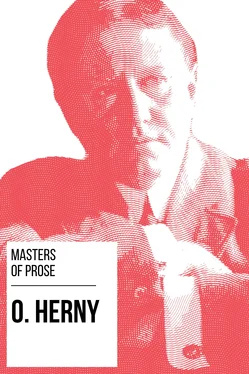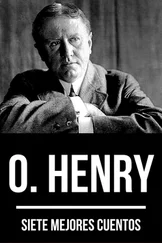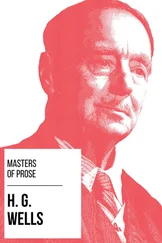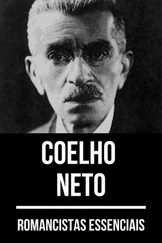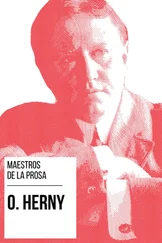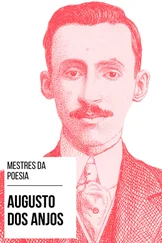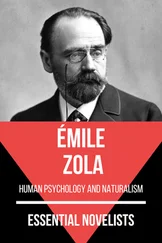I give it up. I hear of wonderful bargains in fabrics, and of miracles performed with needle and thread; but I am in doubt. I hold my pen poised in vain when I would add to Dulcie's life some of those joys that belong to woman by virtue of all the unwritten, sacred, natural, inactive ordinances of the equity of heaven. Twice she had been to Coney Island and had ridden the hobby-horses. 'Tis a weary thing to count your pleasures by summers instead of by hours.
Piggy needs but a word. When the girls named him, an undeserving stigma was cast upon the noble family of swine. The words-of-three-letters lesson in the old blue spelling book begins with Piggy's biography. He was fat; he had the soul of a rat, the habits of a bat, and the magnanimity of a cat . . . He wore expensive clothes; and was a connoisseur in starvation. He could look at a shop-girl and tell you to an hour how long it had been since she had eaten anything more nourishing than marshmallows and tea. He hung about the shopping districts, and prowled around in department stores with his invitations to dinner. Men who escort dogs upon the streets at the end of a string look down upon him. He is a type; I can dwell upon him no longer; my pen is not the kind intended for him; I am no carpenter.
At ten minutes to seven Dulcie was ready. She looked at herself in the wrinkly mirror. The reflection was satisfactory. The dark blue dress, fitting without a wrinkle, the hat with its jaunty black feather, the but-slightly-soiled gloves—all representing self-denial, even of food itself—were vastly becoming.
Dulcie forgot everything else for a moment except that she was beautiful, and that life was about to lift a corner of its mysterious veil for her to observe its wonders. No gentleman had ever asked her out before. Now she was going for a brief moment into the glitter and exalted show.
The girls said that Piggy was a "spender." There would be a grand dinner, and music, and splendidly dressed ladies to look at, and things to eat that strangely twisted the girls' jaws when they tried to tell about them. No doubt she would be asked out again. There was a blue pongee suit in a window that she knew—by saving twenty cents a week instead of ten, in—let's see—Oh, it would run into years! But there was a second-hand store in Seventh Avenue where—
Somebody knocked at the door. Dulcie opened it. The landlady stood there with a spurious smile, sniffing for cooking by stolen gas.
"A gentleman's downstairs to see you," she said. "Name is Mr. Wiggins."
By such epithet was Piggy known to unfortunate ones who had to take him seriously.
Dulcie turned to the dresser to get her handkerchief; and then she stopped still, and bit her underlip hard. While looking in her mirror she had seen fairyland and herself, a princess, just awakening from a long slumber. She had forgotten one that was watching her with sad, beautiful, stern eyes—the only one there was to approve or condemn what she did. Straight and slender and tall, with a look of sorrowful reproach on his handsome, melancholy face, General Kitchener fixed his wonderful eyes on her out of his gilt photograph frame on the dresser.
Dulcie turned like an automatic doll to the landlady.
"Tell him I can't go," she said dully. "Tell him I'm sick, or something. Tell him I'm not going out."
After the door was closed and locked, Dulcie fell upon her bed, crushing her black tip, and cried for ten minutes. General Kitchener was her only friend. He was Dulcie's ideal of a gallant knight. He looked as if he might have a secret sorrow, and his wonderful moustache was a dream, and she was a little afraid of that stern yet tender look in his eyes. She used to have little fancies that he would call at the house sometime, and ask for her, with his sword clanking against his high boots. Once, when a boy was rattling a piece of chain against a lamp-post she had opened the window and looked out. But there was no use. She knew that General Kitchener was away over in Japan, leading his army against the savage Turks; and he would never step out of his gilt frame for her. Yet one look from him had vanquished Piggy that night. Yes, for that night.
When her cry was over Dulcie got up and took off her best dress, and put on her old blue kimono. She wanted no dinner. She sang two verses of "Sammy." Then she became intensely interested in a little red speck on the side of her nose. And after that was attended to, she drew up a chair to the rickety table, and told her fortune with an old deck of cards.
"The horrid, impudent thing!" she said aloud. "And I never gave him a word or a look to make him think it!"
At nine o'clock Dulcie took a tin box of crackers and a little pot of raspberry jam out of her trunk, and had a feast. She offered General Kitchener some jam on a cracker; but he only looked at her as the sphinx would have looked at a butterfly—if there are butterflies in the desert.
"Don't eat it if you don't want to," said Dulcie. "And don't put on so many airs and scold so with your eyes. I wonder if you'd be so superior and snippy if you had to live on six dollars a week."
It was not a good sign for Dulcie to be rude to General Kitchener. And then she turned Benvenuto Cellini face downward with a severe gesture. But that was not inexcusable; for she had always thought he was Henry VIII, and she did not approve of him.
At half-past nine Dulcie took a last look at the pictures on the dresser, turned out the light, and skipped into bed. It's an awful thing to go to bed with a good-night look at General Kitchener, William Muldoon, the Duchess of Marlborough, and Benvenuto Cellini. This story really doesn't get anywhere at all. The rest of it comes later—sometime when Piggy asks Dulcie again to dine with him, and she is feeling lonelier than usual, and General Kitchener happens to be looking the other way; and then—
As I said before, I dreamed that I was standing near a crowd of prosperous-looking angels, and a policeman took me by the wing and asked if I belonged with them.
"Who are they?" I asked.
"Why," said he, "they are the men who hired working-girls, and paid 'em five or six dollars a week to live on. Are you one of the bunch?"
"Not on your immortality," said I. "I'm only the fellow that set fire to an orphan asylum, and murdered a blind man for his pennies."
THE CALIPH, CUPID AND THE CLOCK
Prince Michael, of the Electorate of Valleluna, sat on his favourite bench in the park. The coolness of the September night quickened the life in him like a rare, tonic wine. The benches were not filled; for park loungers, with their stagnant blood, are prompt to detect and fly home from the crispness of early autumn. The moon was just clearing the roofs of the range of dwellings that bounded the quadrangle on the east. Children laughed and played about the fine-sprayed fountain. In the shadowed spots fauns and hamadryads wooed, unconscious of the gaze of mortal eyes. A hand organ—Philomel by the grace of our stage carpenter, Fancy—fluted and droned in a side street. Around the enchanted boundaries of the little park street cars spat and mewed and the stilted trains roared like tigers and lions prowling for a place to enter. And above the trees shone the great, round, shining face of an illuminated clock in the tower of an antique public building.
Prince Michael's shoes were wrecked far beyond the skill of the carefullest cobbler. The ragman would have declined any negotiations concerning his clothes. The two weeks' stubble on his face was grey and brown and red and greenish yellow—as if it had been made up from individual contributions from the chorus of a musical comedy. No man existed who had money enough to wear so bad a hat as his.
Prince Michael sat on his favourite bench and smiled. It was a diverting thought to him that he was wealthy enough to buy every one of those close-ranged, bulky, window-lit mansions that faced him, if he chose. He could have matched gold, equipages, jewels, art treasures, estates and acres with any Croesus in this proud city of Manhattan, and scarcely have entered upon the bulk of his holdings. He could have sat at table with reigning sovereigns. The social world, the world of art, the fellowship of the elect, adulation, imitation, the homage of the fairest, honours from the highest, praise from the wisest, flattery, esteem, credit, pleasure, fame—all the honey of life was waiting in the comb in the hive of the world for Prince Michael, of the Electorate of Valleluna, whenever he might choose to take it. But his choice was to sit in rags and dinginess on a bench in a park. For he had tasted of the fruit of the tree of life, and, finding it bitter in his mouth, had stepped out of Eden for a time to seek distraction close to the unarmoured, beating heart of the world.
Читать дальше
